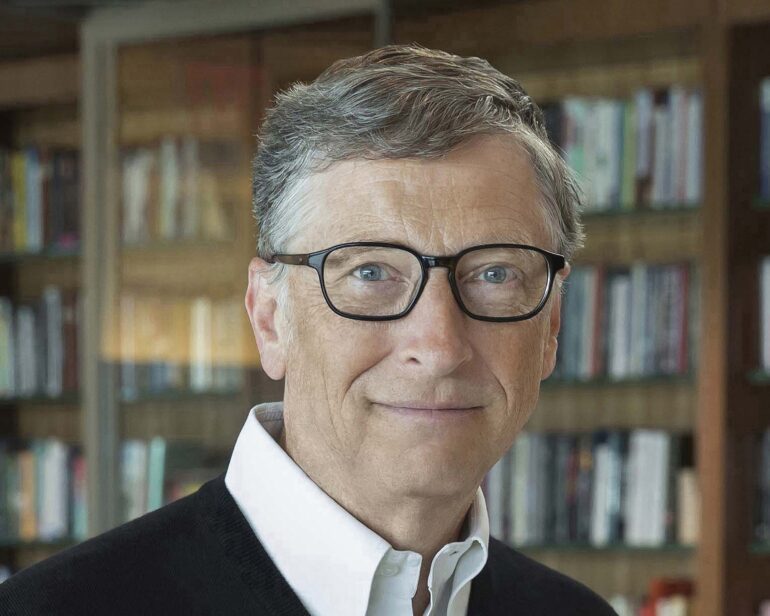TL;DR:
- Bill Gates foresees AI-driven personal assistants becoming commonplace within five years.
- These AI “agents” will simplify tasks by responding to natural language commands.
- Agents will continuously improve and offer highly personalized assistance.
- Gates believes AI agents will significantly enhance productivity, aiding in business planning and more.
- Competition is rising in the AI agent market, making services potentially affordable for individuals.
- AI agents are expected to support various aspects of daily life, from arranging flowers to scheduling meetings.
Main AI News:
In the realm of artificial intelligence, the divisive discussions surrounding its potential to either revolutionize industries or disrupt the workforce are ever-present. However, Bill Gates, the billionaire co-founder of Microsoft, envisions a future where AI becomes a ubiquitous presence, bestowing upon each individual their very own executive assistant within a mere five years.
In a recent post on his official blog, Gates acknowledged that as of 2023, software remains somewhat limited in its capabilities. Nevertheless, he confidently forecasted a complete transformation within the next half-decade. He anticipated a departure from the current landscape of numerous apps catering to distinct tasks, asserting that users would simply articulate their desires to their devices in everyday language. This is where the advent of AI-powered “agents” would come into play, according to Gates.
“In the near future,” Gates asserted, “anyone who’s connected to the digital realm will enjoy the services of a personal assistant empowered by artificial intelligence that transcends the limitations of today’s technology. These agents are astute, proactive entities, capable of making recommendations before they are solicited.”
These personal assistants, equipped to handle an array of tasks across diverse applications, will undergo continual refinement as they become intimately acquainted with their users. For instance, when planning a trip, conventional chatbots might merely identify budget-friendly hotels. In contrast, an agent will possess knowledge of your travel timing and your preference for either new destinations or familiar ones.
Gates elaborated, “Upon inquiry, it will offer tailored suggestions based on your interests and penchant for adventure, and it will secure reservations at restaurants aligning with your tastes. Achieving this level of deeply personalized planning today necessitates engaging a travel agent and expending valuable time conveying your preferences.”
The impact of AI agents on productivity is set to be profound, Gates contended. Microsoft and Google, among others, are actively competing in the development of AI-driven productivity tools through virtual assistants like Copilot and Bard. However, Gates envisioned that future AI agents would surpass the capabilities of these tools.
“Should you conceive a business idea, an agent will aid you in drafting a business plan, crafting a presentation, and even generating visual representations of your potential product,” he predicted. “Organizations will deploy agents directly for employee consultation and participation in meetings, thus enabling them to provide instant answers to queries.”
Amidst this burgeoning landscape, massive investments have poured into AI development, notably catalyzed by the rise of OpenAI’s ChatGPT. Gates pointed out that while numerous tech giants, including Microsoft, Google, Baidu, and Elon Musk’s xAI, vie for supremacy in the AI arena, he anticipated that no single company would monopolize the agent industry. However, he did note that individuals might bear the cost of utilizing these AI agents in the future.
“In light of the multitude of companies entering the AI domain just this year,” Gates remarked, “we anticipate intense competition, potentially leading to highly affordable agent services. Presently, agents are integrated within software applications like word processors and spreadsheets, but eventually, they will operate autonomously. Whether you toil in an office or not, your agent will assist you much like personal assistants support executives today.”
Ultimately, Gates asserted that these agents would evolve to support users in virtually any activity and aspect of life. “If a friend undergoes surgery,” he elucidated, “your agent will offer to arrange flower delivery and execute the order on your behalf. If you express a desire to reconnect with a former college roommate, your agent will coordinate with them to schedule a meeting. Just prior to your rendezvous, it will remind you that their eldest child has embarked on a college journey at the local university.”
Bill Gates’ vision of a future replete with AI-powered personal assistants aligns with the broader technological zeitgeist. It’s a vision shared by notable figures like Tim Berners-Lee, the internet’s inventor, and Mustafa Suleyman, co-founder of Google DeepMind, who have also prophesied the imminent ubiquity of AI-driven personal assistants.
Conclusion:
Bill Gates’ vision of widespread AI-powered personal assistants represents a significant shift in the market. The democratization of AI agents will not only streamline everyday tasks but also revolutionize productivity and business processes. As competition intensifies, businesses must adapt to this evolving landscape, offering innovative AI solutions to meet the growing demand for personalized assistance.

